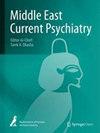Developing the first Arabic quality of life for parents of children with autism (QoLA) scale: translation, cultural adaptation and psychometric validation
IF 1.6
Q3 PSYCHIATRY
引用次数: 0
Abstract
In this research, the first Arabic quality of life (A-QoLA) measure for the mothers and fathers of children with autism is translated and validated. While there have been several translations of the QoLA scale, to the best of our knowledge, there are no Arabic version of this scale. To translate and validate the QoLA, 407 family members (mostly parents) participated in this research. Item total correlation and confirmatory factor analysis (CFA) were used for the scale validation process. The results show that like QoLA, all the items in Part A of the A-QoLA were positively correlated with the total score except items 2, 4, 17, and 22 (which were deleted). In addition, the Part B outcome of the item total correlation showed that all the items had a positive correlation with the overall score. The CFA results show high internal validity and consistency confirmed the two-domain structure for QoLA after it was translated into Arabic. Our results have very important implications as autism is quite common in the Arab world, and the scale can be used across several Arabic-speaking countries to understand the impact of autism on families.开发首个阿拉伯语自闭症儿童家长生活质量(QoLA)量表:翻译、文化适应和心理测量验证
本研究翻译并验证了首个针对自闭症儿童父母的阿拉伯语生活质量量表(A-QoLA)。虽然 QoLA 量表已有多个译本,但就我们所知,该量表还没有阿拉伯语版本。为了翻译和验证 QoLA,407 名家庭成员(主要是父母)参与了这项研究。在量表验证过程中使用了项目总相关性和确认性因素分析(CFA)。结果表明,与 QoLA 一样,A-QoLA A 部分中除第 2、4、17 和 22 项(已删除)外,其余项目均与总分呈正相关。此外,B 部分的项目总相关性结果显示,所有项目均与总分呈正相关。CFA结果表明,QoLA翻译成阿拉伯语后,其内部效度和一致性较高,证实了QoLA的双领域结构。我们的研究结果具有非常重要的意义,因为自闭症在阿拉伯世界非常普遍,该量表可用于多个阿拉伯语国家,以了解自闭症对家庭的影响。
本文章由计算机程序翻译,如有差异,请以英文原文为准。
求助全文
约1分钟内获得全文
求助全文
来源期刊

Middle East Current Psychiatry
Medicine-Psychiatry and Mental Health
CiteScore
3.00
自引率
0.00%
发文量
89
审稿时长
9 weeks
 求助内容:
求助内容: 应助结果提醒方式:
应助结果提醒方式:


